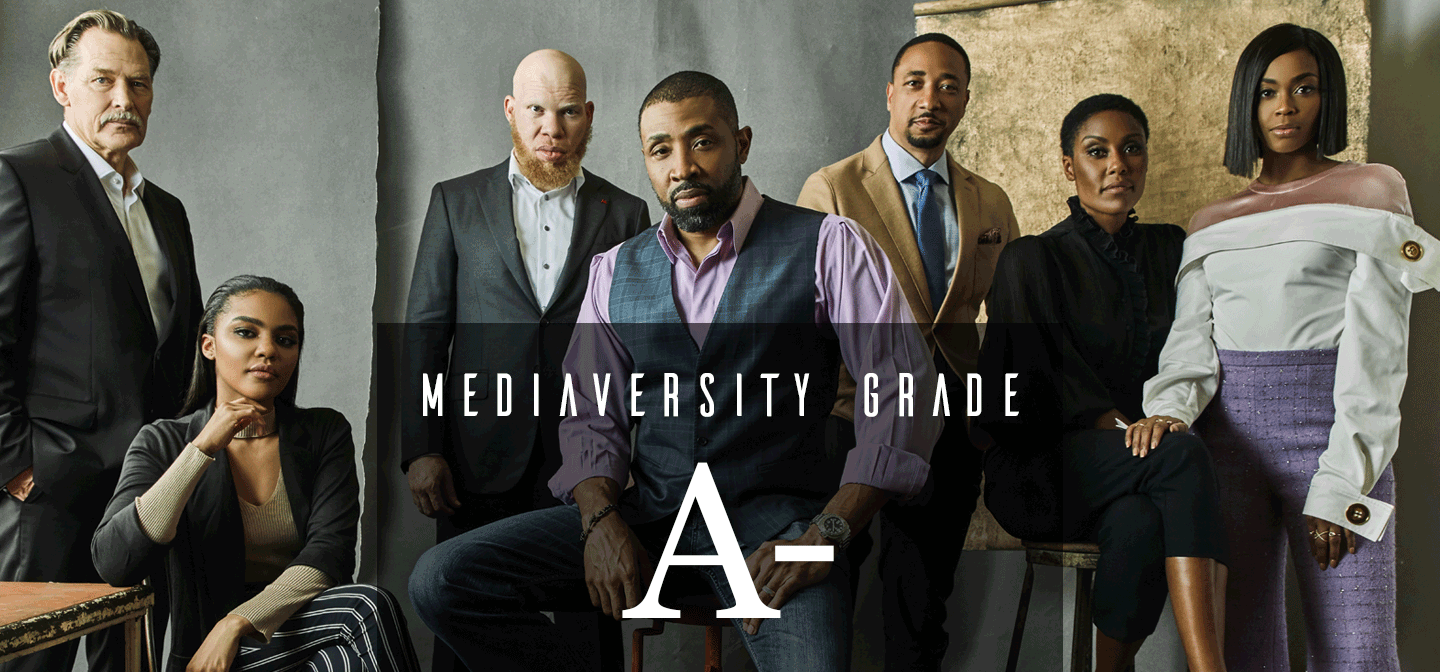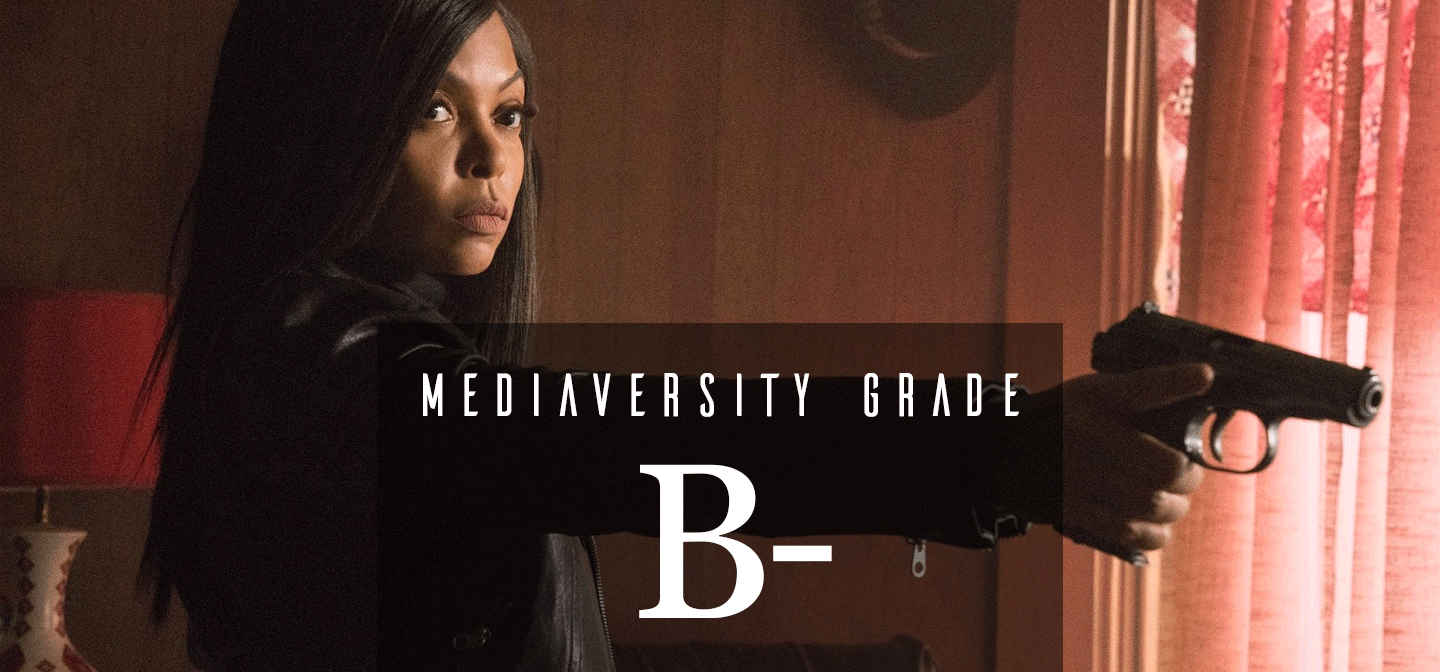Black Lightning - Season 1
“Anissa shines as the first Black lesbian superhero on TV and her significance can’t be overstated.”
Title: Black Lightning (2018)
Episodes Reviewed: Season 1
Creators: Salim Akil 👨🏾🇺🇸 and Mara Brock Akil 👩🏾 🇺🇸, based on the characters by Trevor Von Eeden 👨🏾🇬🇾🇺🇸
Writers: Jan Nash 👩🏼🇺🇸 (3 eps), Salim Akil 👨🏾🇺🇸 (2 eps), Adam Giaudrone 👨🏼🇺🇸 (2 ep), Pat Charles 👨🏾🇺🇸 (2 eps), Charles D. Holland 👨🏾🇺🇸 (2 eps), Lamont Magee 👨🏾🇺🇸 (1 ep), Keli Goff 👩🏾🇺🇸 (1 ep), and Melora Rivera 👩🏽🇺🇸 (1 ep)
Reviewed by Tinker 👩🏻🇺🇸
Technical: 4/5
Trevor Von Eeden first created Black Lightning in 1977, but forty years later, his work still feels relevant in a genre that has remained stubbornly white-centric. For this reason, the CW’s Black Lightning has caught the public’s attention not only as one of the few superhero shows on TV with a Black lead, but as one of the few shows willing to tackle heavy political issues like police brutality, government corruption, protests, or gang violence as well. These pressing issues are grounded by a core plot: a drug epidemic in the fictional city of Freeland, where protagonist Jefferson Pierce (Cress Williams) resides as a high school principal by day and a reluctant superhero by night.
The topics explored in Black Lightning are crucial, but the execution by husband-and-wife team Salim and Mara Brock Akil is not without its hiccups. Small plot holes, off-tone dialogue, and uneven pacing mars its first season. Despite this, the show stands out among its peers as an exciting and thought-provoking show to watch.
Gender: 5/5
Does it pass the Bechdel Test? YES
The women of Black Lightning are completely badass, perhaps evidence of the formidable talent behind the scenes. The writer’s room is split between men and women, and co-creator Mara Brock Akil is known for her work on shows such as Being Mary Jane, The Game, and Girlfriends, all of which follow the lives of Black women. Yes, Jefferson may be the titular superhero, but he is empowered by the women in his life. His daughters are heroes in their own right, with their own superpowers, motivations, and storylines. Better yet, the women share complex and endearing relationships with each other, painting a balanced world that does not revolve around one central male figure.
Throughout the season, we see examples of these relationships, particularly within the Pierce family. Younger daughter Jennifer (China Anne McClain) confides in her mother, Lynn (Christine Adams), while elder daughter Anissa (Nafeesa Williams) is a classic older sister to Jennifer. Outside of the family, we see Anissa flirt with a girl from a comic book store or the vice-principal of Garfield High school, Kara Fowdy (Skye P. Marshall), juggling her duties.
Villains and heroes alike, the women of Black Lightning are multifaceted. Critics have noticed this as well, stating their delight in their relatability and power.
In an interview with Essence Magazine, co-creator Salim Akil states:
Although the show's called Black Lightning, I wanted it to be clear from the very beginning that this was going to be an egalitarian process and women's voices would always run through it ... I couldn't write a story without these women being strong and opinionated.
Race: 5/5
As one of the few shows centered on a superhero of color, Black Lightning quickly stands out. Moreover, the show takes a nuanced and honest approach to what being a superhero means in a majority-Black community. In the town of Freeland, all characters encounter systemic racism, but their methods of dealing with it varies. This allows multiple perspectives, conflicts, and relationships to flourish. The inclusion of Black Lightning’s arch nemesis, Tobias Whale, is especially noteworthy due to the lack of black characters with albinism on television. His actor, Marvin Jones III, states in an interview with the Hollywood Reporter:
I knew it was a great opportunity to break a stigma, an undeserving stigma about people with visual uniqueness ... You can't exclude anyone when you talk about diversity and that's the beautiful thing about our show. I get to play an African American man with albinism in a pivotal role on a network television show.
Grace Choi (played by Chantal Thuy, a Canadian actress of Vietnamese descent), Anissa’s girlfriend, is also a great addition to the show’s diversity. In the comics, Choi is both an Amazonian warrior and of possible Chinese descent, with her own complicated backstory and impressive repertoire of powers. While she doesn’t appear as often in the latter half of the season, the show implies a more present role for her in the future.
LGBTQ: 4.5/5
Anissa shines as the first Black lesbian superhero on TV and her significance can’t be overstated. The show’s normalization of her experience is refreshing, as her sexuality intersects with the other parts of her life but does not define it.
However, Anissa’s presence as the only queer protagonist in the show somewhat limits the representation of this category. The side characters include a girlfriend that leaves almost as soon as she is introduced. A second love interest, Grace, has only briefly appeared so far. Here’s to hoping the next season will expand the sensitivity they gave Anissa to other LGBTQ characters. In the meantime, I’m happy to see women of color in the roles, proving how the Akils truly had their eyes on intersectionality as they created Black Lightning.
Deduction for Disability: -0.50
Despite recent strides, the superhero genre has a history of mishandling characters with disability—Professor X’s constant search for a “cure” for his paralysis, for example. Disappointingly, Black Lightning follows suit by falling right into the disabled villain trope.
Disability becomes a device to push Khalil (Jordan Calloway), an athlete once bright-eyed about his future, onto a path of evil. After being shot during a protest in episode three, Khalil loses his ability to walk. Yet, he is “miraculously” able to stand again after striking a deal with Tobias and receiving a vague medical procedure that gives him a steel spine. After this, he becomes another of Tobias’ pawns.
The origin of Khalil’s anger is directly related to his disability and Black Lightning emphasizes this connection. Khalil’s documented life in his wheelchair is sparse and negative. Quick scenes of him in rehabilitation are interwoven throughout the episodes leading to his meeting with Tobias, often lingering on Jennifer’s hopelessness and Khalil’s rage. He views his disability as end of his future which then leads to his dark turn. This must have disappointed some fans, such as Chistopher Ciu-Tabet of Multiversity Comics who had hoped Khalil would reject Tobias’ offer and instead acknowledge that disability does not define him or his future.
On the flipside, we do see one positive representation of disability. The character of Tobias was always a Black crime lord with albinism in the comics, and while this could have been an awful portrayal of a flat villain, the Akils paint Tobias with complexity and a give him a sympathetic backstory.
Mediaversity Grade: A- 4.5/5
Black Lightning is a bold and welcome addition to the roster of CW shows. With a strong cast of Black characters, many of whom are women—including a revolutionary lesbian superhero—Black Lightning is not afraid to face political issues head on. Though the craft of the show itself could use some polish, the Akils achieve more than they flounder. Luckily for us, the CW recognizes that and has since renewed the show for a sophomore season.




